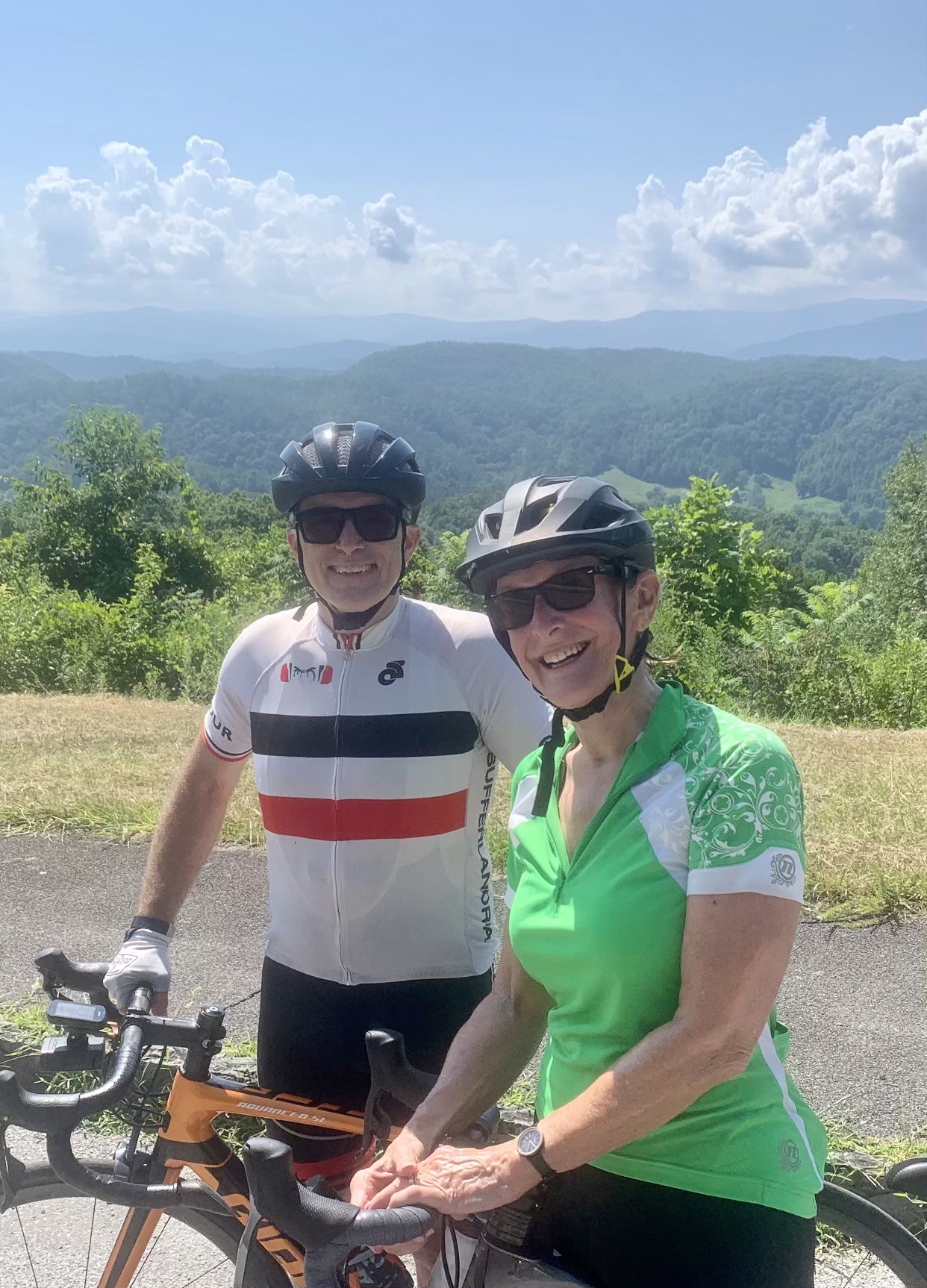For Jacquelynne Prince, the prospect of catching COVID-19 was never a question of if but of when. Prince, an Adult Nurse Practitioner (APRN), retired from University Gastroenterology on Oct. 15. Two days later, her husband, Marty Prince, M.D., a pulmonary/critical care physician at Parkwest Medical Center, came up positive for Covid.
“The truth is, we weren’t really surprised, because in both our jobs, we were potentially exposed all the time,” Jacquelynne Prince said. In the midst of a pandemic was not exactly how she anticipated retirement going, she said, but “things fall into place for a reason.”

Jacquelynne Prince, APRN, volunteered for the AstraZeneca Covid vaccine trial.
For the next two weeks, he lived upstairs, she lived downstairs in their west Knox County home. They kept windows open when the weather was amenable. They communicated by text, phone call and zoom. He used disposable plates and utensils, she cleared out whenever he had to come downstairs. While he did not get seriously ill, Prince said his most significant symptom was extreme fatigue. By the end of their quarantine, miraculously, she had not contracted the disease.
But going through the experience, which she called “a little surreal,” pushed her in another direction. Prince decided to volunteer for AstraZeneca’s Covid vaccine trial. Just last week she was called back for her second shot, at which point she requested that her participation be “unblinded” as to whether she received the actual vaccine or placebo.
“When they told me I got the real thing, I could have danced a jig,” she said. “I was so excited. It’s given me hope.”
Prince, 65, said after the first shot at the end of November, she was convinced she’d been given the placebo because she had no reaction other than a sore arm for about 24 hours, “which you can get from any shot. There’s nothing unusual about that. And now I’ve had both shots, and I am fine.”
Participating in the trial was her way “to contribute in my own little way” to getting the pandemic under control. She very deliberately shared her news last week on Facebook.
“I was so delighted. I started getting messages from people I know from my church, saying they were in the study, too,” Prince said. “And I am asking them to please post a picture or share when they get the vaccine. We all need, within our circles, to get the word out, get vaccinated.”
Prince said AstraZeneca will be following up with her for the next two years as the trial and research continues. The vaccine has already launched in the United Kingdom. She will be getting her first antibody test toward the end of the month, at which time she’s hopeful the vaccine will be approved by the FDA.
She’s crossing her fingers for ongoing positive results. Though retired, she is eager to get back to volunteering for the Interfaith Health Clinic. She’s missing time with her three children and three grandchildren. She is the current president of the Tennessee Medical Association Alliance and is ready for postponed events to become a reality again.
“Honestly, staying at home is taking a toll on me,” Prince said, but added that things will only get better when more people take the disease seriously. “I am flabbergasted by the lack of regard for science,” she said, especially when it comes to wearing masks.
Prince spent her formative years in Japan and Taiwan as her family moved with her father’s Navy assignments.
“Most of my childhood was spent overseas. Wearing a mask (to prevent spread of disease) was normal in those cultures. It was nothing to see people, self-initiated, wear a mask on a train, a bus or out in public. We’re all in this together,” she said, giving her well-informed advice on the subject. “Get vaccinated as soon as you can. Social distance and wear your masks. Lastly, be patient. This is an evolving body of knowledge. We’re getting there, but it’s still going to take some time.”
Beth Kinnane is community editor for KnoxTNToday.com.

